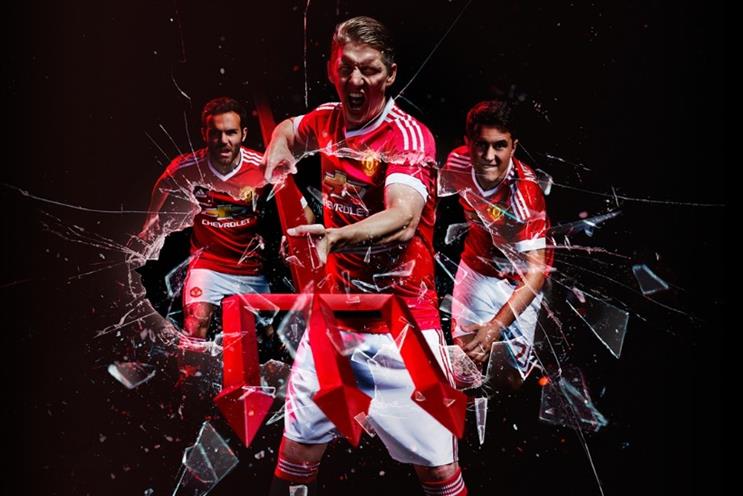
His comments come in the context of Adidas’ £750m kit sponsorship deal with Manchester United, signed last summer, and the club’s continued goal woes as speculation over van Gaal's future hits fever pitch.
Hainer was otherwise fulsome with praise, saying that the deal was going "very well" and that Adidas had surpassed expectations when it came to shirt sales.
The sponsor etiquette in sport to date has been to keep mum on a club’s performance – if it’s going really badly, quietly drop the sponsorship and cite "a change in strategy", or don’t say anything at all, as in the case of Land Rover and England Rugby.
But Hainer’s comments and last year’s delayed rumblings from the FIFA sponsors suggest this could be about to change.
"While there has previously been suspicion and a perception that sponsors are involved in on-pitch matters, this is the first real instance I can recall of a sponsor openly commenting on the playing style of the team," comments Leah Gillooly, lecturer in marketing at Alliance Manchester Business School.
Gillooly added that Adidas likely perceived that the scale of its investment gives the brand right to comment on the "mismatch between the current reality and what they would like to see".
More money, more problems
This isn’t just about shirt sales either, Gillooly says, but squeezing the most out of the multimillion pound investment and catching up with Nike.
Adidas is the global number two sportswear brand behind Nike, but has fallen to third place in the US, losing out to Under Armour. In Europe, Adidas also faces an increased challenge from Under Armour, which is expanding its presence in the region.
With top clubs commanding huge fees for sponsorship, it’s likely brands will want to see more bang for their buck, and that means voicing their opinions.
Gillooly says: "Rights-holders should be increasingly prepared for sponsors who want to become more involved in the team’s activities.
"Where this might become a problem is in the perception of fans, who might resent such comments as further commercial intrusion into sports."
While FIFA’s sponsors have won praise for (eventually) speaking up about the footballing body’s corruption, Nike has paid the price for being too closely associated with athletics. Its brand ambassador, IAAF chairman Seb Coe, after leaked emails suggested he may have lobbied to award the world championships event to Eugene in Nike’s hometown, Oregon.
Brands, says Gillooly, will have to learn to tread a fine line between being involved and "dictating" on sporting matters.



.jpg)
.jpeg)
